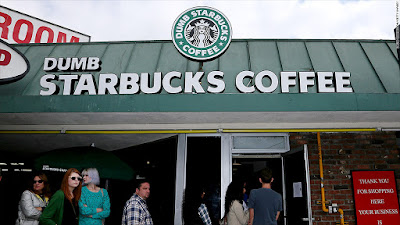The Prisoner's Dilemma
According to the textbook, "the problem of cooperation can be best understood by analyzing a simple exchange game between two individuals", known as "The Prisoner's Dilemma."
Starbucks's biggest competitor is McDonald's, which is contrary to what people may think. Many people assume that their biggest competitors are Dunkin' Donuts or independent coffee shops. The rise of the low cost, fast-food coffee option is actually the most threatening to Starbucks, not simply other coffee shops.
It is simple to explain a prisoner's dilemma situation for Starbucks. For example, the two players are Starbucks and McDonald's. Both must spend millions of dollars advertising their products. In an attempt to cooperate, they could potentially both agree to spend the same amount of money and each take half of the market share. Or, they could agree to spend no money on advertising, and still grow their sales. The dilemma exists, however, in that if one of the players cheats and does actually advertise when the other doesn't, they will do much better and potentially take all of the market share.
As you can see, this herein lies the prisoner's dilemma. Cooperation sounds ideal, but it rarely works in a capitalistic environment where competition is (quite literally) everything.

Comments
Post a Comment